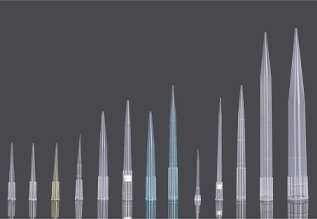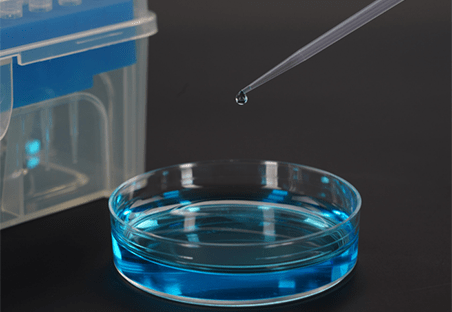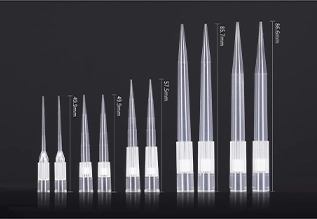In the intricate world of scientific research, accuracy and precision reign supreme. At the heart of this meticulous realm lies the humble pipette, a tool responsible for transferring minute volumes of liquids with unerring accuracy. But even the most sophisticated pipette is incomplete without its faithful companion: the pipette tip. These tiny plastic extensions ensure both optimal sample handling and protection from contamination, making them true lab essentials.
However, not all pipette tips are created equal. Among the vast array of options, two major categories stand out: universal tips and aerosol filter tips. Choosing the right one for your experiment can greatly impact its outcome, hence the importance of understanding their distinct roles.

What are Universal Pipette Tips?
The workhorses of the lab, universal tips offer broad compatibility, fitting comfortably on a wide range of pipettes from different manufacturers. This versatility makes them cost-effective and convenient, especially for routine tasks.
Pros and Cons of Universal Pipette Tips
Pros:
- Universal fit: They can be used with a wide range of pipettes from different manufacturers, offering flexibility and convenience, especially in multi-brand labs.
- Cost-effective: Generally cheaper than aerosol filter tips, making them a budget-friendly option for routine tasks.
- Availability: Widely available and readily stocked by most lab suppliers.
- Good for basic tasks: Suitable for non-sensitive samples and general lab work where contamination risk is minimal.
Cons:
- No aerosol barrier: Aerosols and liquid splashes can potentially contaminate the pipette shaft, increasing the risk of cross-contamination and instrument damage.
- Not ideal for sensitive samples: This may lead to sample-to-sample cross-contamination due to lack of filter, impacting experimental accuracy and reproducibility.
- Potentially reduced accuracy: Can be susceptible to evaporation and aerosolization of some liquids, affecting pipetting accuracy for certain experiments.
- May not comply with biosafety regulations: Certain labs with strict biosafety protocols may mandate the use of aerosol filter tips for all procedures.

What are Aerosol Filter Pipette Tips?
Stepping up the game in safety and protection are aerosol filter tips. These tips boast a special built-in filter that acts as a shield, preventing aerosols and liquid splashes from reaching the pipette shaft. This makes them the go-to choice for working with hazardous materials, volatile liquids, and sensitive samples.
Why Use Aerosol Filter Tips?
Enhanced Safety:
- Protects pipettes from contamination: The built-in filter prevents aerosols and liquid splashes from reaching the pipette shaft, reducing the risk of cross-contamination and instrument damage. This is especially important when working with pathogens, viruses, or other infectious agents.
- Minimizes exposure to hazardous materials: Aerosols can carry harmful chemicals, toxins, and allergens. Filter tips act as a barrier, protecting the user from accidental inhalation or exposure to skin and eyes.
Improved Accuracy:
- Reduces sample evaporation and aerosolization: Certain liquids, particularly volatile ones, can easily evaporate or form aerosols during pipetting. This can lead to inaccurate volume measurements and affect the results of your experiment. Filter tips minimize these losses, ensuring greater accuracy and reproducibility.
- Protects sensitive biomolecules: Enzymes, proteins, and other delicate molecules can be degraded by aerosolization. Filter tips help prevent this degradation, preserving the integrity of your samples for accurate analysis.

What are the Different Types of Aerosol Filter Pipette Tips?
There are a few different types of aerosol filter pipette tips available, each with its advantages and disadvantages.
- Standard aerosol filter tips: These are the most common types of aerosol filter tips. They have a small filter made of polyethylene or polypropylene that is inserted into the tip. The filter is effective at preventing aerosols from entering the pipette, but it can also reduce the flow of liquid, which can make it difficult to pipette small volumes accurately.
- Low-retention aerosol filter tips: These tips are designed to minimize the amount of liquid that is absorbed by the filter. They have a special filter that is treated to repel liquids. This makes them ideal for pipetting viscous liquids or small volumes of liquid.
- Wide-bore aerosol filter tips: These tips have a larger opening than standard aerosol filter tips. This makes them ideal for pipetting viscous liquids or large volumes of liquid. However, they are not as effective at preventing aerosols from entering the pipette.
The type of aerosol filter pipette tip you choose will depend on the specific needs of your application. If you are working with hazardous or infectious materials, you will need to use a standard aerosol filter tip. If you are pipetting viscous liquids or small volumes of liquid, you may want to use a low-retention aerosol filter tip. And if you are pipetting large volumes of liquid, you may want to use a wide-bore aerosol filter tip.

What are the Factors to Consider When Choosing between Universal and Aerosol Filter Tips?
Choosing between universal and aerosol filter tips boils down to prioritizing fit, accuracy, sample protection, and cost. Here’s a breakdown of the key factors to consider:
- Fit:
Universal tips: Designed to fit a wide range of pipette brands, offering flexibility but potentially a looser fit with some pipettes. This could impact accuracy and precision.
Aerosol filter tips: Typically brand-specific for optimal fit, ensuring leak-free sealing and accurate pipetting.
- Accuracy:
Universal tips: Looser fit may affect volume consistency, leading to slight inaccuracies, especially for smaller volumes.
Aerosol filter tips: Snug fit minimizes dead volume and evaporation, improving accuracy and precision.
- Sample protection:
Universal tips: No filter, leaving your pipette and samples vulnerable to aerosol contamination. This can be crucial for sterile work or experiments with hazardous materials.
Aerosol filter tips: Built-in filter prevents aerosols from entering the pipette shaft, protecting your instrument and preventing sample cross-contamination.
- Cost:
Universal tips: Generally cheaper due to wider compatibility and simpler manufacturing.
Aerosol filter tips: More expensive due to brand-specific design and the added filter technology.
- Application: Consider the sensitivity of your experiments and potential risks of contamination. For critical work, aerosol filter tips offer better protection.
- Volume: Smaller volumes benefit more from the tight fit and low dead volume of aerosol filter tips.
- Frequency of use: If you frequently switch pipettes, universal tips might offer convenience, while dedicated users could benefit from the accuracy and protection of specific tips.
Ultimately, the choice depends on your specific needs and priorities. If accuracy, sample protection, and minimizing contamination are paramount, aerosol filter tips are the recommended choice. However, if budget is a major concern and your work doesn’t necessitate the strictest sample protection, universal tips might be sufficient.
Conclusion
The choice between universal and aerosol filter pipette tips is not a simple one-size-fits-all solution. It’s a calculated dance between convenience, cost, and the demands of your specific research. For routine tasks with less stringent sterility requirements, universal tips may suffice. However, when accuracy, sample protection, and minimizing contamination are non-negotiables, aerosol filter tips emerge as the undisputed champions. Investing in these protective barriers not only safeguards your precious samples but also shields your pipettes from potentially hazardous aerosols, extending their lifespan and ensuring the smooth flow of your research. Remember, in the realm of scientific inquiry, precision is paramount, and choosing the right pipette tip is a critical step toward unlocking the secrets of the universe. Partner with trusted lab consumables suppliers who offer high-quality tips from reliable China pipette tips suppliers, and let your pipettes be precise and protected research.




